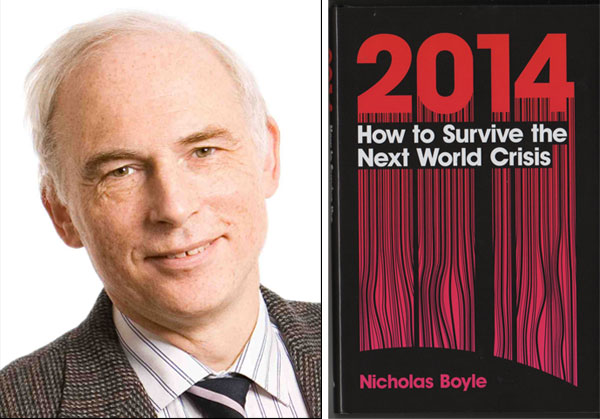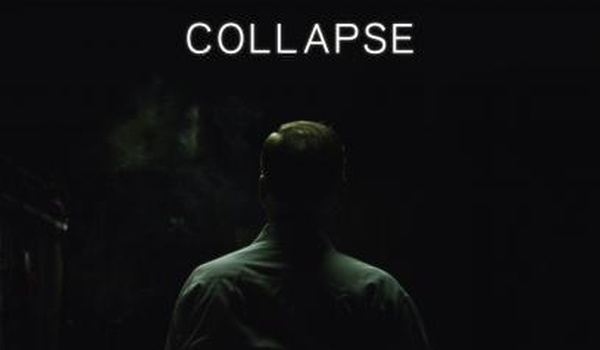

![Is It Time To Look Beyond Capitalism Toward A New Social Order? [RSA Video]](http://www.mutualresponsibility.org/wp-content/uploads/2012/03/capitalism_600px-1.jpg)
Is It Time To Look Beyond Capitalism Toward A New Social Order? [RSA Video]
Is it time to look beyond capitalism towards a new social order that would allow us to live within a system that could be responsible, just and humane?” Professor David Harvey, PhD, researches to figure out the role of crises in the whole history of capitalism and what’s specific and special about the crisis this time around” by looking at “the internal contradictions of capital accumulation.” An Internal Contradiction Of Capital Accumulation Financial profits in the United States were soaring after the 1990s” while “profits in manufacturing were coming down … you can see the imbalance … you’ve screwed industry to keep financiers happy,” and as a result “the wealth of the rich … has accelerated.” How Did This Happen? Since the 1970s, we have been in a phase that we call wage repression.” If you diminish wages, where is your demand going to come from?” The answer was, well … get out your credit cards.” Capitalism Never Solves Its Crises Problems, It Moves Them Around Geographically Out of this comes a theory which is very, very important: that capitalism never solves its crises problems, it moves them around geographically.” In other words, you had a finance crisis … you sort of half solved that, but … at the expense of a sovereign debt...
2 New Films: Occupy Love And Surviving Progress
Occupy Love: A Film That Captures The Global (R)evolution Of Compassion In Action Occupy Love will be a moving, transformative feature documentary that asks the question: how are the economic and ecological crises we are facing today a great love story? A profound shift is taking place all over the world. Humanity is waking up to the fact that the current system that dominates the planet is failing to provide us with health, happiness or meaning. The dominant paradigm is based on separation, as exemplified by the financial system, and the corporate emphasis of profits before people.” This crisis has become the catalyst for a profound transformation: millions of people are deciding that enough is enough – the time has come to create a new world, a world that works for all life. We have experienced an extraordinary year of change, from the Arab Spring, to the European Summer, and now, erupting into North America: the Occupy Movement. This is a revolution rooted in compassion, direct democracy, and shared power, as opposed to the ‘power over’ model of the corporate world view. The new story is one of Inter-dependence. Love is the movement.” Images and text taken from the film’s crowdfunding page on IndieGoGo For more information, updates and videos such as the one below, visit occupylove.org Surviving Progress Humanity’s ascent is often measured by the speed of progress. But what if progress is actually spiraling us downwards, towards collapse? Ronald Wright, whose best-seller, A Short History Of Progress inspired Surviving Progress, shows how past civilizations were destroyed by “progress traps” – alluring technologies and belief systems that serve immediate...![The Tragedy Of Our Times Defined By Anthropologist Michael Wesch [PopTech Video]](http://www.mutualresponsibility.org/wp-content/uploads/2012/09/michael-wesch.jpg)
The Tragedy Of Our Times Defined By Anthropologist Michael Wesch [PopTech Video]
What I would consider the tragedy of our times is that we are more connected than ever, and yet, we don’t realize it and don’t truly live it.” Michael Wesch, PhD, a Cultural Anthropologist, stated the above at the end of a talk at PopTech where he shared insights from an exploration of one of today’s most defining characteristics – the development of online culture. Here is a 6 min. clip with highlights from the lecture: At the start of the lecture, Wesch clarifies the significance of media in shaping human culture and relationships: Media is like an environment, it takes us over, and sort of consumes us in many ways. Media are not just tools, they’re not just means of communication, media actually mediate our conversations. Media, in some ways, determine or dictate who can say what to who, what they can say, how it will be said etc. And so, when media change – our conversations change.” He later adds that the really deep question that he and his students are trying to get at is not only how our conversations are changing but how our communities might be changing, and even how our selves are changing.” In contrast to old forms of media, Wesch analyzes the nature of new social media as: • not controlled by the few, • not one way, • created by, for, and around networks, not masses • having the potential to transform individual pursuits into collective action.” Towards the end of the presentation, he shows the most responded-to video in the early days of YouTube – an anonymous video that encouraged...
6 Must Watch Movies On The Global Crisis
If you haven’t been in a coma the last couple of years, then you might have noticed that the economy is crashing, food and gas prices are on the rise, and if people weren’t protesting in your city square, then they were protesting in one close by. However, as shown by the following 6 films, these instances and many others are tightly interconnected, and there are people looking into what’s causing them, where they’re leading humanity, and what can be done about them. Collapse The present & future forecast of the world’s problems, & how they’re forcing humanity into a new era, through the lens of Michael C. Ruppert Meltdown: The Secret History Of The Global Financial Collapse The 2008 financial crash and the events that followed revealed humanity’s tight global interconnectedness & interdependence Blind Spot Peak oil’s complex multi-crisis & its challenge upon a society rooted in generations of self-interest values Inside Job How the commonly held value of “maximize your profit” led to the 2008 financial crisis Earth 2100 Crises unfold integrally, not individually, exceeding national & disciplinary borders, & forcing humanity to adopt a global approach to solving them Zeitgeist: Moving Forward The realization of the negative influence of a society that prominently values individual self-interest upon human development & the need to build a new kind of social influence that promotes people’s...![Collapse [Film]](http://www.mutualresponsibility.org/wp-content/uploads/2012/09/michael-ruppert.jpg)
